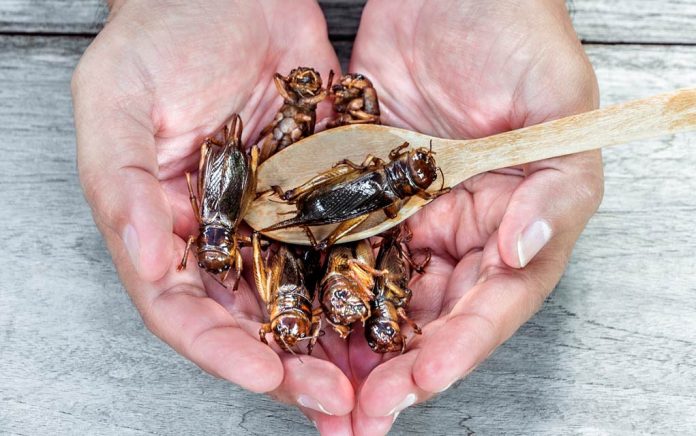(SurvivalDaily.com) – Everybody believes they have what it takes to survive in a bad situation, but do they really? When traditional food runs out, could they stomach eating bugs to sustain themselves?
In some cultures across the globe, eating insects is commonplace. In fact, some species of insects are incredibly nutritious – if you can get over the idea of what it is you’re eating.
Preparation and Cooking
There are many backyard bugs we can eat in an emergency or, if you want, add to your diet now. After all, insects are the most abundant source of protein on the planet. While some of these bugs can be eaten raw, you should cook them to avoid parasites and pathogens.
Before you go hunting for a not so appealing snack, here are some edible bugs that can be found just about anywhere.
- Grubs– The word “grub” refers to the larval stage of beetles in the insect world. There are hundreds of species of these on the planet, some are not that terrible tasting. Catching them is rather simple as they’re found in or around rotting wood. Break the wood apart and you’re likely to have your next lunch. Cooking them is as easy as capturing them; just roast them over a fire like a marshmallow until their skin is crispy. Bon appetit.
- Worms– This is probably the most common creature when it comes to talking about eating bugs. While worms are technically not even in the same spectrum as insects, they’re still edible and are a very good source of protein. They’re everywhere and are especially easy to find after rainfall. Don’t worry if it hasn’t rained recently because they’re still very easy to find in damp soil, rotting wood, under leaf piles, and under rocks. While they can be eaten raw, you should cook them to avoid parasites. Plus, there’s something unsettling about a live worm going down your throat.
- Ants– Another insect that’s easy to get are ants, which live anywhere from ant hills to inside trees and rotting wood. Catching them is simple. Pick them up and drop them in a container with water in it so they drown while you catch more. While you can eat them without being cooked, you should still cook them so they’re not trying to bite you if they’re still alive. Boiling them for about six minutes will do the trick while neutralizing the acid in their bodies.
- Stinkbugs– As bad as they sound and smell, these bugs are actually a delicacy in Mexico. Typically, you shouldn’t eat a bug that gives off an odor as a defense mechanism, but stinkbugs are an exception. You can usually find them taking a nice stroll on open ground and in the winter you can find them under logs and rocks. Easily identified by their shape, resembling a medieval shield, you can pick them up and put them in a container. You’ll need to drown them for about 5 to 10 minutes before cooking them to get rid of that signature scent they possess. This could be done while capturing them by putting them in a container full of water. After they’ve drowned you can roast them in a dry pan.
- Crickets– These critters are a great source of protein and are a good replacement for flour when ground down to a powder. In fact, this powder is available for purchase at a variety of stores. Crickets tend to reside under rocks, logs, and generally anywhere that it is dark and damp. Crickets do carry nematodes, so you will want to cook them before eating them. To prepare them for cooking, pull the head off (which should bring out the entrails as well), and remove the legs. Yes, you can eat the entrails, but getting rid of them reduces the risk of catching a parasite from the bug. You can cook crickets in a pan or on a skewer over an open flame.
While some people around the world do eat insects on a regular basis, it’s okay to leave them as an emergency food supply. Although, if you ate them regularly, you would become accustomed to the taste and it wouldn’t be such a drastic event if you’re ever forced to turn to them to survive.
Have you ever eaten a bug? If so, how was it? Reply to your email and let us know, we would love to hear from you!
Copyright 2021, SurvivalDaily.com

















